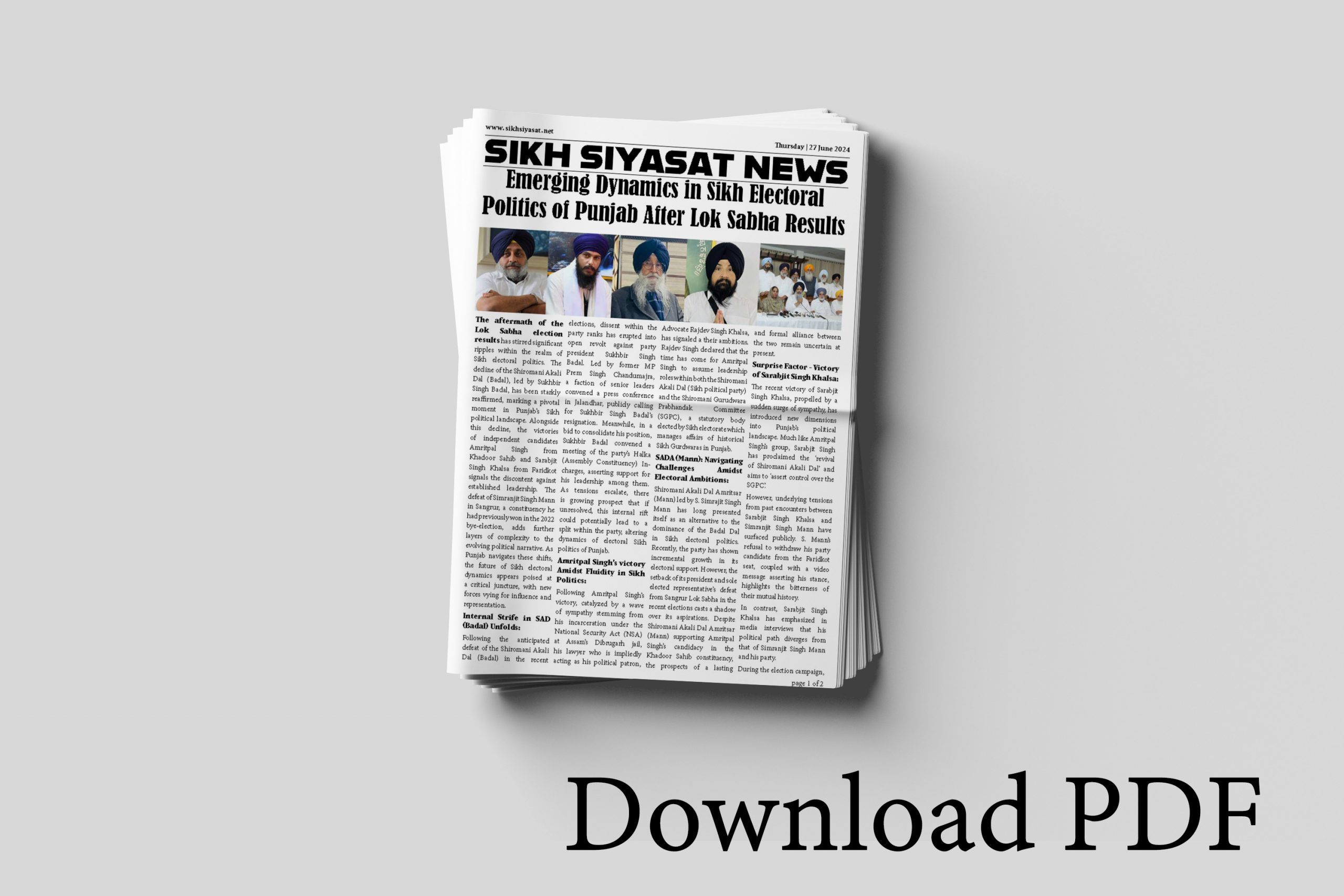Articles/Opinion » Sikh News
Emerging Dynamics in Sikh Electoral Politics of Punjab After Lok Sabha Results
June 27, 2024 | By Sikh Siyasat Bureau
The aftermath of the Lok Sabha election results has stirred significant ripples within the realm of Sikh electoral politics. The decline of the Shiromani Akali Dal (Badal), led by Sukhbir Singh Badal, has been starkly reaffirmed, marking a pivotal moment in Punjab’s Sikh political landscape.
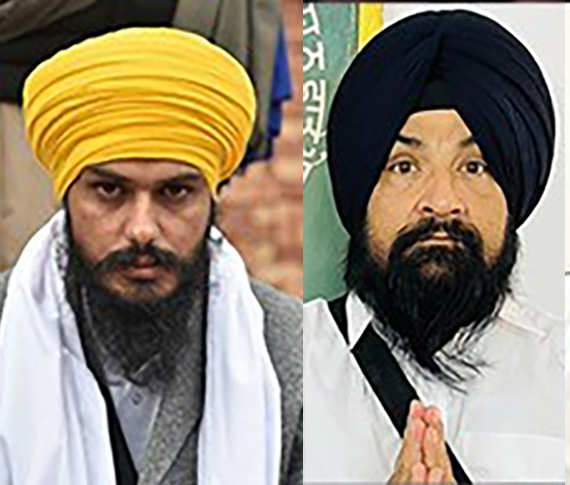
Amritpal Singh (L), Sarabjit Singh Khalsa (R) who won Lok Sabha election as independent candidates [File Photos]
Alongside this decline, the victories of independent candidates Amritpal Singh from Khadoor Sahib and Sarabjit Singh Khalsa from Faridkot signals the discontent against established leadership. The defeat of Simranjit Singh Mann in Sangrur, a constituency he had previously won in the 2022 bye-election, adds further layers of complexity to the evolving political narrative. As Punjab navigates these shifts, the future of Sikh electoral dynamics appears poised at a critical juncture, with new forces vying for influence and representation.
Internal Strife in SAD (Badal) Unfolds:
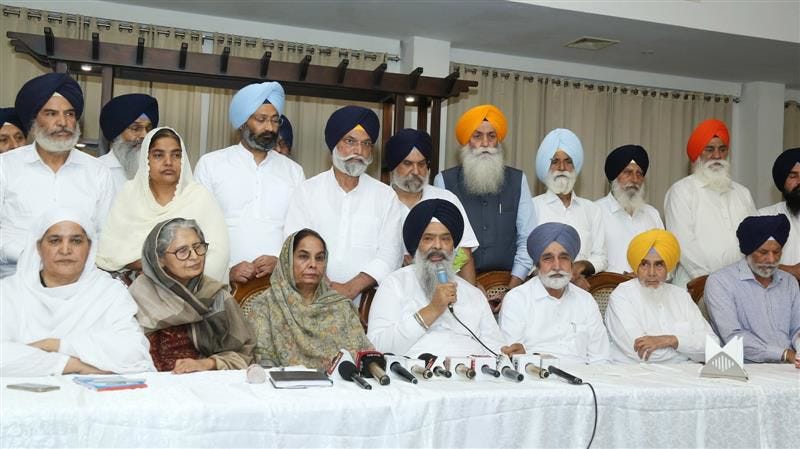
Prem Singh Chandumajra and other SAD (Badal) leaders addressing press conference in Jalandhar demanding Sukhbir Badal’s resignation from the post of President | June 25, 2024
Following the anticipated defeat of the Shiromani Akali Dal (Badal) in the recent elections, dissent within the party ranks has erupted into open revolt against party president Sukhbir Singh Badal. Led by former MP Prem Singh Chandumajra, a faction of senior leaders convened a press conference in Jalandhar, publicly calling for Sukhbir Singh Badal’s resignation.
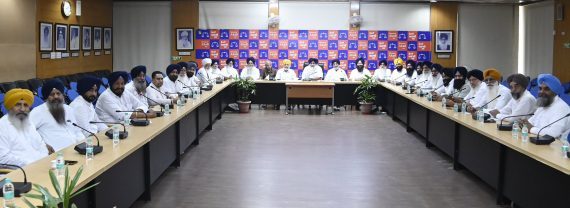
Sukhbir Badal chairs the meeting of Shiromani Akali Dal (Badal) district presidents at party head office in Chandigarh | 25 June 2024 | Photo Source: X
Meanwhile, in a bid to consolidate his position, Sukhbir Badal convened a meeting of the party’s Halka (Assembly Constituency) In-charges, asserting support for his leadership among them. As tensions escalate, there is growing prospect that if unresolved, this internal rift could potentially lead to a split within the party, altering dynamics of electoral Sikh politics of Punjab.
Amritpal Singh’s victory Amidst Fluidity in Sikh Politics:
Following Amritpal Singh’s victory, catalyzed by a wave of sympathy stemming from his incarceration under the National Security Act (NSA) at Assam’s Dibrugarh jail, his lawyer who is impliedly acting as his political patron, Advocate Rajdev Singh Khalsa, has signaled a their ambitions.
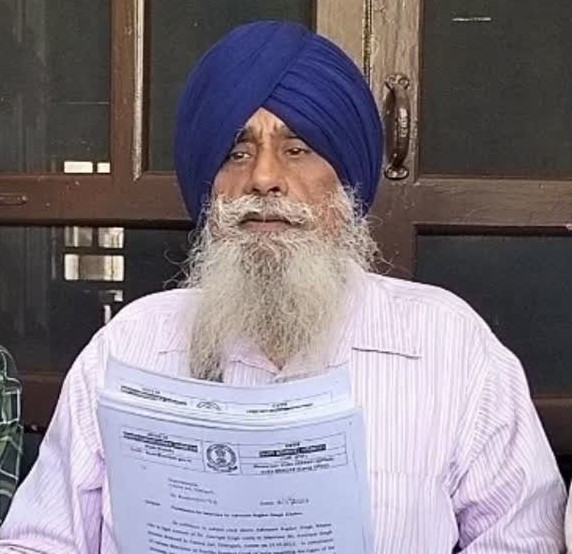
Rajdev Singh Khalsa | File Photo
Rajdev Singh declared that the time has come for Amritpal Singh to assume leadership roles within both the Shiromani Akali Dal (Sikh political party) and the Shiromani Gurudwara Prabhandak Committee (SGPC), a statutory body elected by Sikh electorate which manages affairs of historical Sikh Gurdwaras in Punjab.
SADA (Mann): Navigating Challenges Amidst Electoral Ambitions:
Shiromani Akali Dal Amritsar (Mann) led by S. Simrajit Singh Mann has long presented itself as an alternative to the dominance of the Badal Dal in Sikh electoral politics. Recently, the party has shown incremental growth in its electoral support.
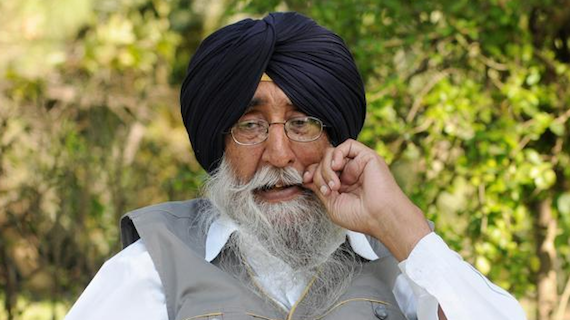
Simranjit Singh Mann [File Photo]
However, the setback of its president and sole elected representative’s defeat from Sangrur Lok Sabha in the recent elections casts a shadow over its aspirations. Despite Shiromani Akali Dal Amritsar (Mann) supporting Amritpal Singh’s candidacy in the Khadoor Sahib constituency, the prospects of a lasting and formal alliance between the two remain uncertain at present.
Surprise Factor – Victory of Sarabjit Singh Khalsa:
The recent victory of Sarabjit Singh Khalsa, propelled by a sudden surge of sympathy, has introduced new dimensions into Punjab’s political landscape. Much like Amritpal Singh’s group, Sarabjit Singh has proclaimed the ‘revival of Shiromani Akali Dal’ and aims to ‘assert control over the SGPC’.
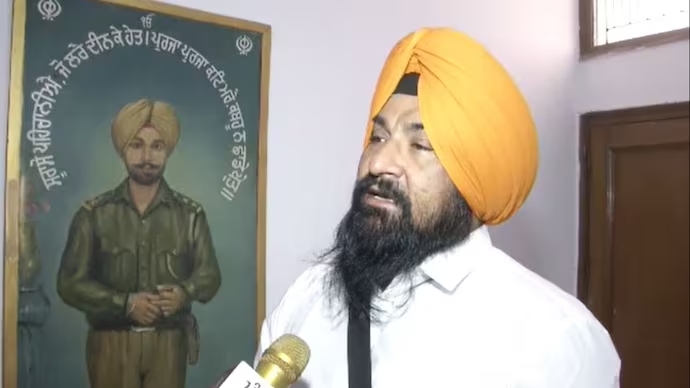
Sarabjit Singh Khalsa, Member of Indian Parliament from Faridkot constituency | File Photo
However, underlying tensions from past encounters between Sarabjit Singh Khalsa and Simranjit Singh Mann have surfaced publicly. S. Mann’s refusal to withdraw his party candidate from the Faridkot seat, coupled with a video message asserting his stance, highlights the bitterness of their mutual history.
In contrast, Sarabjit Singh Khalsa has emphasized in media interviews that his political path diverges from that of Simranjit Singh Mann and his party.
During the election campaign, there was a sort of collaboration between Amritpal Singh’s group and Sarabjit Singh Khalra, highlighted by Amritpal Singh’s mother sparing a day to campaign for Sarabjit Singh Khalsa.
However, since their victories, signs of closeness between the two have been scarce, especially regarding collaboration for their future political goals.
Interestingly, several common figures have supported both Amritpal Singh and Sarabjit Singh, including ex-jathedar Bhai Jasbir Singh Rodey and Jatinder Singh Bhangu, the Chief Engineer of Punjab State Agriculture Marketing Board, commonly known as Mandi Board. While Rodey has backed Amritpal Singh on selective but crucial junctures, Er. Bhangu is believed to be actively directing every move of Amritpal Singh’s group. Whether the support from these common figures will lead to a lasting collaboration between these emerging groups remains uncertain.
Emerging Multipolarity in Sikh Electoral Politics of Punjab
A fragmented landscape is unfolding in Sikh electoral politics, marked by the significant reduction of the dominant force, SAD (Badal), which is now embroiled in internal strife that may lead to a split.
As multiple players vie for influence, no single entity has yet consolidated all Sikh electoral power.

L to R: Sukhbir Singh Badal, Simranjit Singh Mann, Amritpal Singh, Sarabjit Singh Khalsa and SAD Badal rebels led by Prem Singh Chandumajra | File Photos
This multi-polar dynamic is evident with at least five factions poised to contest for domination: the weakened Badal Dal, a potential splinter group, the enduring presence of SADA (Mann), Amritpal Singh’s emerging group, and Sarabjit Singh Khalsa, backed by supportive sections, as the fifth contestant.
Probable Impact of Expected Announcement of SGPC Elections:
If SGPC elections are announced, the landscape will see significant additions to the aforementioned factions. Several other groups have long awaited the opportunity to assert their influence in these “religious elections.”
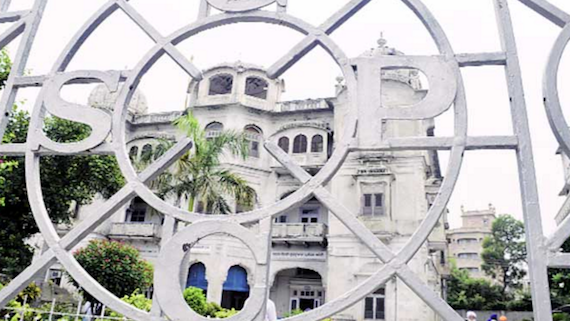
Gate of Sirdar Teja Singh Samundari Hall – Head office of the SGPC | Image For Representation.
Among them are the Panthic Akali Lehar under ex-Jathedar Bhai Ranjit Singh, Panthic Talmel Sangathan led by Giani Kewal Singh and others. There are reports that even the Aam Aadmi Party (AAP) may indirectly enter in the SGPC poll fray by asking its local Sikh faces to participate in SGPC elections.
Takeaways from DSGMC Elections:
Recent elections for the Delhi Sikh Gurdwara Management Committee (DSGMC) vividly illustrate the consequences of such multipolar contests. Despite the Badal Dal emerging as the largest victor, its influence was notably diminished. This erosion of dominance created an opportune environment for the BJP to exploit, triggering internal dissent within the Badal Dal’s Delhi unit and orchestrating a shift in power alignment by placing those aligned with it in power.
The situation is such that currently, there are four factions within Sikh political circles in Delhi. Interestingly, despite being staunch opponents of each other, all of these factions within Sikh political circles in Delhi are either directly or indirectly aligned with the BJP.
The ‘Haryana Committee’ Experience:
Unlike the DSGMC, elections for the Haryana Sikh Gurdwara Management Committee (HSGMC) have yet to take place, but the political dynamics mirror the Delhi like situation. The BJP has capitalized on internal factionalism within Sikh political groups, exerting significant influence over the HSGMC and effectively steering its decisions. As a result, the HSGMC, intended to wrest control of historic Sikh Gurdwaras from the influence of the Badal Dal, particularly due to its’ alignment with the BJP, fell under BJP’s influence just after its formation.
Fragmented electoral Sikh Politics: BJP’s favorite Playground:
The BJP’s agenda to fragment Punjab’s Sikh electoral politics has been evident since 2014. Unlike traditional strategies favoring a single dominant party, including its Sikh ally or affiliated groups, the BJP has actively pursued a multipolar landscape. This approach aims to prevent any singular entity from decisively dominating Sikh political representation.
Disarray Dominates when Consolidation was Required:
It is often said that new construction requires the demolition of existing structures. Since 2015, the Shiromani Akali Dal, historically the preeminent force in Punjab’s Sikh electoral politics, has witnessed a gradual decline in its influence. However, this transformation has not led to a consolidated reshaping of the political landscape. Instead, as discussed earlier, it has resulted in a more complex and fractured political picture, contrasting with expectations of consolidation. The current scenario appears to be moving towards further fragmentation.
A Deep Analysis from Immediate to Fundamental Factors is Required:
Given the current scenario, there is a pressing need for a comprehensive examination of various factors, ranging from immediate relevance to fundamental questions concerning the scope of Sikh electoral politics in Punjab and India at large. A detailed exploration of these facets is warranted, and a separate write-up will follow to delve deeper into these critical aspects.
To Get Sikh Siyasat News Alerts via WhatsApp:
(1) Save Our WhatsApp Number 0091-855-606-7689 to your phone contacts; and
(2) Send us Your Name via WhatsApp. Click Here to Send WhatsApp Message Now.
Sikh Siyasat is on Telegram Now. Subscribe to our Telegram Channel
Related Topics: Amritpal Singh, Badal Dal, Bhagwant Maan, Lakha Sidhana, Lakhbir Singh @ Lakha Sadhana, Lok Sabha Election 2024, Parmjeet Singh Gazi, Punjab Politics, Sarabjit Singh khalsa, Shiromani Akali Dal (Mann), Shiromani Akali Dal Amritsar (Mann), Simranjit Singh Mann, Sukhbir Singh Badal, Virsa Singh Valtoha, Waris Punjab De

